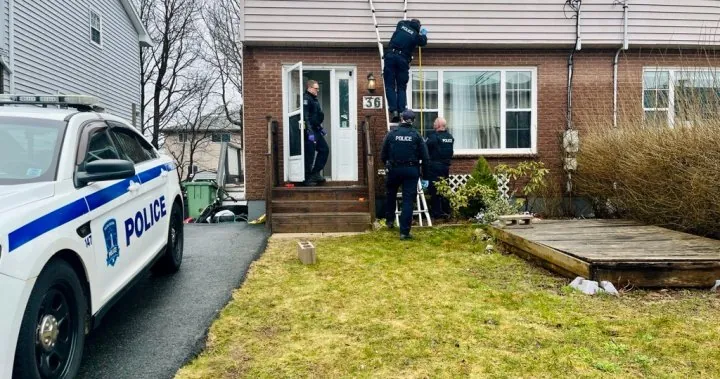
Urgent Call for Radon Disclosure: Experts Warn of Hidden Dangers in Your Home
2025-03-31
Author: Noah
Overview of the Radon Disclosure Bill
A crucial hearing took place recently concerning a proposed bill aimed at requiring home sellers to inform potential buyers about the presence of radon gas in residential properties. This initiative is vital, especially in North Dakota, which unfortunately holds the grim title of having the highest radon levels in the United States.
Understanding Radon and Its Risks
Radon is a colorless, odorless radioactive gas that can infiltrate homes through cracks in floors and walls, posing serious health risks, including lung cancer. In fact, radon is recognized as the second leading cause of lung cancer deaths in the country, outpacing fatalities caused by home fires, a fact that Dr. Stephanie Dahl, President of the North Dakota Medical Association, passionately highlighted. Dahl shared her personal experience with radon exposure that led to significant health concerns affecting her lungs, which serves as a chilling reminder of the hidden dangers lurking in many homes.
Expert Testimonials
“Think about it,” she urged the committee, “almost everyone has a smoke detector in their home, yet how many of us have actually tested for radon? The lack of awareness is alarming.”
Dr. Gary Schwartz, a prominent professor and chair of the Department of Population Health at the University of North Dakota School of Medicine, provided alarming statistics about radon concentrations in residential areas. He explained that a safe radon level is considered anything below 4 picocuries per liter. To put it in perspective, he noted that homes with radon levels exceeding 20 picocuries equate to the risks of smoking two packs of cigarettes daily. He recounted a shocking case of a home in downtown Grand Forks, which had a staggering radon level of 160 picocuries, comparable to smoking 320 cigarettes per day.
Legislative Support and Recommendations
Supporters of the bill, including several health professionals, affirmed that while the legislation does not compel sellers to test for radon or halt the sale of properties with elevated levels, it mandates transparency regarding known radon risks. This is seen as a crucial step toward protecting potential buyers and promoting public awareness about this invisible threat.
Call to Action
The committee unanimously recommended the bill for passage, signaling a strong collective push for increased safety measures against radon exposure. As health experts rally behind this initiative, homeowners and buyers alike are urged to pay close attention to radon levels, ensuring that they are safeguarded from one of the leading yet often overlooked hazards in their homes.
As the conversation around this vital issue unfolds, it’s clear: knowledge is power, and in this case, it could be the difference between life and death. Don’t wait—get your home tested for radon today!









 Brasil (PT)
Brasil (PT)
 Canada (EN)
Canada (EN)
 Chile (ES)
Chile (ES)
 Česko (CS)
Česko (CS)
 대한민국 (KO)
대한민국 (KO)
 España (ES)
España (ES)
 France (FR)
France (FR)
 Hong Kong (EN)
Hong Kong (EN)
 Italia (IT)
Italia (IT)
 日本 (JA)
日本 (JA)
 Magyarország (HU)
Magyarország (HU)
 Norge (NO)
Norge (NO)
 Polska (PL)
Polska (PL)
 Schweiz (DE)
Schweiz (DE)
 Singapore (EN)
Singapore (EN)
 Sverige (SV)
Sverige (SV)
 Suomi (FI)
Suomi (FI)
 Türkiye (TR)
Türkiye (TR)
 الإمارات العربية المتحدة (AR)
الإمارات العربية المتحدة (AR)